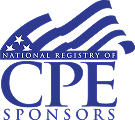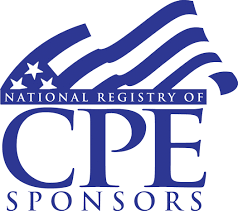Non-Compete Agreements in the Workplace will be Banned in 2023!

About this Webinar
About Webinar
About one in five American workers—approximately 30 million people—are bound by a non-compete clause and are thus restricted from pursuing better employment opportunities. A non-compete clause is a contractual term between an employer and a worker that blocks the worker from working for a competing employer or starting a competing business, typically within a certain geographic area and the period after the worker’s employment ends. Because non-compete clauses prevent workers from leaving jobs and decrease competition for workers, they lower wages for both workers who are subject to them as well as workers who are not.
Non-compete clauses also prevent new businesses from forming, stifling entrepreneurship, and preventing novel innovation which would otherwise occur when workers can broadly share their ideas. Noncompete clauses can exploit workers and hinder economic liberty. Workers often have less bargaining power than their employers. In many cases, noncompete clauses are take-it-or-leave-it contracts that exploit workers’ lack of bargaining power and coerce workers into staying in jobs they would rather leave. To varying degrees, each state restricts employers’ ability to enforce noncompete clauses due to concerns that they harm workers and threaten a person’s ability to practice their trade.
Session Highlights
- Learn how this issue has been brought to the forefront after the State of the Union Address
- Learn how the Federal Trade Commission disagrees about the reasons for non-compete agreements
- Learn what Employers say non-competes are needed in the workplace
- Learn how the rule would provide that noncompete clauses are an unfair method of competition. As a result, the rule would ban employers from entering noncompete clauses with their workers, including independent contractors.
- Learn how The rule would require employers to rescind existing noncompete clauses with workers and actively inform their employees that the contracts are no longer in effect.
- Learn why this ban impacts employees and largely minority employees.
- Learn what the rule will do for employees.
- Learn what the specifics are when Employers create and mandate non-compete agreements
- Learn how some states have already made banning non-competes part of their regulationsThe Federal Trade Commission proposes preventing employers from entering into non-compete clauses with workers and requiring employers to rescind existing non-compete clauses. The Commission estimates that the proposed rule would increase American workers’ earnings between $250 billion and $296 billion per year. The Commission is asking for the public’s opinion on its proposal to declare that non-compete clauses are an unfair method of competition, and on the possible alternatives to this rule that the Commission has proposed.
Why You Should Attend
The Federal Trade Commission proposes preventing employers from entering into non-compete clauses with workers and requiring employers to rescind existing non-compete clauses. The Commission estimates that the proposed rule would increase American workers’ earnings between $250 billion and $296 billion per year. The Commission is asking for the public’s opinion on its proposal to declare that non-compete clauses are an unfair method of competition, and on the possible alternatives to this rule that the Commission has proposed.
Who Should Attend
- All Employers
- Business Owners
- Company Leadership
- Compliance professionals
- HR Professionals
- Managers/Supervisors
- Employers in all industries
Note: You will get access to the Recording link and E-Transcript; in your account and at your registered email address.
Speaker(s)
Margie Faulk, PHR, SHRM-CP is a senior level human resources professional with over 14 years of HR management and compliance experience. A former Compliance Officer for Federal Defense Contracting Industry, Margie has worked as an HR and Compliance advisor for major corporations and small businesses in the small, large, private, public and Non-profit sectors. Margie is bilingual (Spanish) fluent and Bi-cultural.
Margie’s focus is on multi-state, national, state and local workplace compliance. Additionally, Margie is working on International compliance initiatives globally which includes workplace compliance in other countries like the UK, Canada, France, Brazil, China, Africa, Mexico and India, just to name a few.
CEUs

The use of this seal confirms that this activity has met HR Certification Institute’s® (HRCI®) criteria for recertification credit pre-approval.
Credits: 1.5

Supreme Trainer is recognized by SHRM to offer Professional Development Credits (PDCs) for the SHRM-CPSM or SHRM-SCPSM. This program is valid for PDC(s) for the SHRM-CP or SHRM-SCP. For more information about certification or recertification, please visit www.shrmcertification.org
Credits: 1.5

Supreme Trainer is registered with the National Association of State Boards of Accountancy (NASBA) as a sponsor of continuing professional education on the National Registry of CPE Sponsors. State boards of accountancy have final authority on the acceptance of individual courses for CPE credit. Complaints regarding registered sponsors may be submitted to the National Registry of CPE Sponsors through its website: https://www.nasbaregistry.org.
Credits: 1.5

Credits: 0
Unlimited Webinars
Why You Should Subscribe to Our Unlimited Webinar?

Unlimited Live and On-Demand Courses
Watch all live or recorded webinars (up to 120 minutes long). Get instant access to a library of more than 500 high quality courses presented by best-in-class presenters.

CEUs: APA, CPE, SHRM and HRCI Credits
Fulfil your recertification requirements by earning CEUs from APA, CPE, SHRM and HRCI.

Free Access to Course Materials
Each program comes with Additional Course Materials, which you can download and read anytime.

Additional Discounts
Get flat 20% discount on Premium Product Category like, Long Hour Webinars.
SUBSCRIBE NOW
